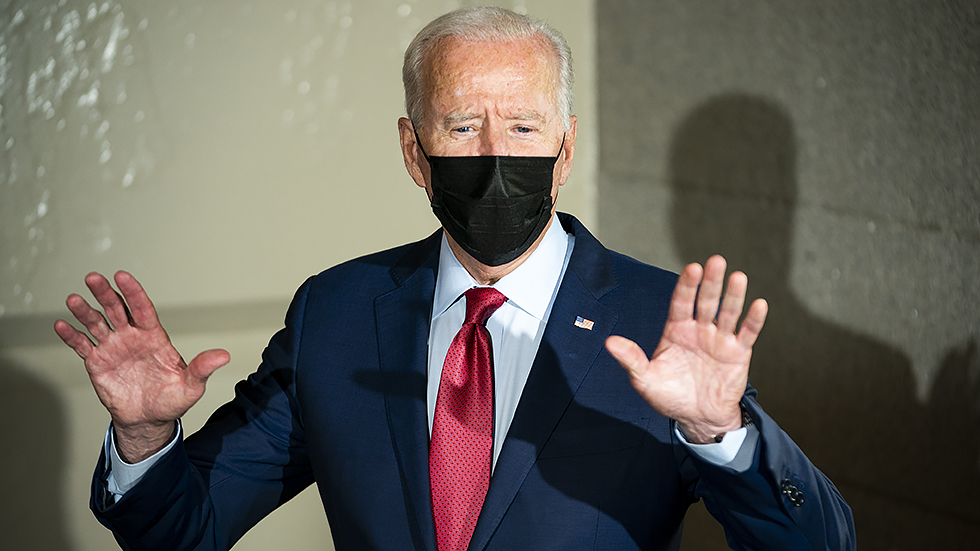Defense & National Security — Chinese aggression ramps up
It’s Friday, welcome to Overnight Defense & National Security, your nightly guide to the latest developments at the Pentagon, on Capitol Hill and beyond. Subscribe here: digital-staging.thehill.com/newsletter-signup.
China on Friday sent 25 military aircraft into Taiwan’s airspace, in the latest show of force toward the self-ruled island.
We’ll break down why its significant, similar moves China has made this past year and how the U.S. military is handling it.
For The Hill, I’m Ellen Mitchell. Write to me with tips: emitchell@digital-staging.thehill.com.
Let’s get to it.
Taiwan jets scramble as 25 Chinese aircraft enter airspace

More than two dozen Chinese fighter jets entered Taiwanese airspace on Friday in the latest show of force toward the self-ruled island.
What did they send? China sent 18 J-16 fighter jets, two H-6 bombers, four Su-30 fighters and an anti-submarine aircraft into Taiwan’s air defense zone, forcing Taiwan to deploy its planes to warn Beijing away. Taiwan also deployed its missile systems to track the Chinese aircraft, Taipei’s Defense Ministry said in a statement.
Context: The aggressive move, which came on China’s National Day, follows a number of similar flights and military drills held by Beijing, which claims Taiwan is part of its territory and has ramped up its rhetoric toward the island since the start of the year.
Past grievances: China in January warned that “’Taiwan independence’ means war.”
Then in August, the U.S. government, which maintains unofficial relations with Taiwan, approved a $750 million artillery system package for the island, heightening tensions with Beijing.
Most recently, Beijing on Sept. 23 flew 19 planes near Taiwan in the morning and five more in the afternoon.
US talks don’t seem to deter: Earlier this week, U.S. and Chinese defense officials held two days of talks amid strained relations between the two nations.
U.S.-China relations remain deeply strained over trade, technology, human rights and military activities in the South China Sea. The U.S. military periodically sends warships and planes to the region to promote freedom of navigation, but China, which has built airstrips and other military infrastructure on man-made islands in the sea, is rankled by the exercises.
ON RISING: FORMER AMB SAYS ‘HUGE THREAT OF CHINA EXPANDING TO AFRICA
Former U.S. Ambassador Sam Brownback says there’s a “huge threat” to global freedom if China heightens its presence in Africa.
Brownback, who was the U.S. ambassador-at-large for International Religious Freedom from 2018 to 2021, joined Hill.TV’s “Rising” to discuss why it’s important for the United States to help Africa recover from the coronavirus pandemic to counter China’s influence.
“There’s a huge threat,” Brownback said of a heightened Chinese presence in Africa.
Biden ‘confident’ in the US cybersecurity efforts

President Biden on Friday expressed confidence in measures taken by his administration during his first months in office to secure the nation against mounting cyber threats following several major cybersecurity incidents in recent months.
Biden highlighted October as Cybersecurity Awareness Month, which was started under the George W. Bush administration.
“Cyber threats can affect every American, every business regardless of size, and every community,” Biden said in his statement. “That’s why my administration is marshaling a whole-of-nation effort to confront cyber threats.
Earlier: Biden on Thursday signed a proclamation declaring October Cybersecurity Awareness Month, with the proclamation pointing to recent security incidents in calling on the American public to “take action to better protect yourselves against cyber threats.”
These incidents included the SolarWinds hack, discovered just prior to Biden taking office in January, which allowed Russian government-linked hackers to compromise numerous federal agencies and more than 100 private sector groups.
The Biden administration has also been forced to grapple with a spike in ransomware attacks against critical U.S. groups, such as hospitals and schools, but most notably those against Colonial Pipeline, meat producer JBS USA, and IT group Kaseya over the summer.
WHAT WE’RE READING
- Biden signs bill to avert shutdown
- US reaches 700,000 COVID-19 deaths
- Military expert argues Milley is ‘not accepting any responsibility’ for Afghanistan withdrawal
- EU, Australia trade talks halted after submarine deal controversy with France
- Defense News: Military COVID death surge continues, but vaccine rates are also up
- Defense One: The Forever War is over. Its 2001 authorization lives on.
- The Associated Press: Military units track guns using tech that could aid foes
That’s it for today. Check out The Hill’s defense and national security pages for the latest coverage. See you Monday.
Copyright 2024 Nexstar Media Inc. All rights reserved. This material may not be published, broadcast, rewritten, or redistributed..













